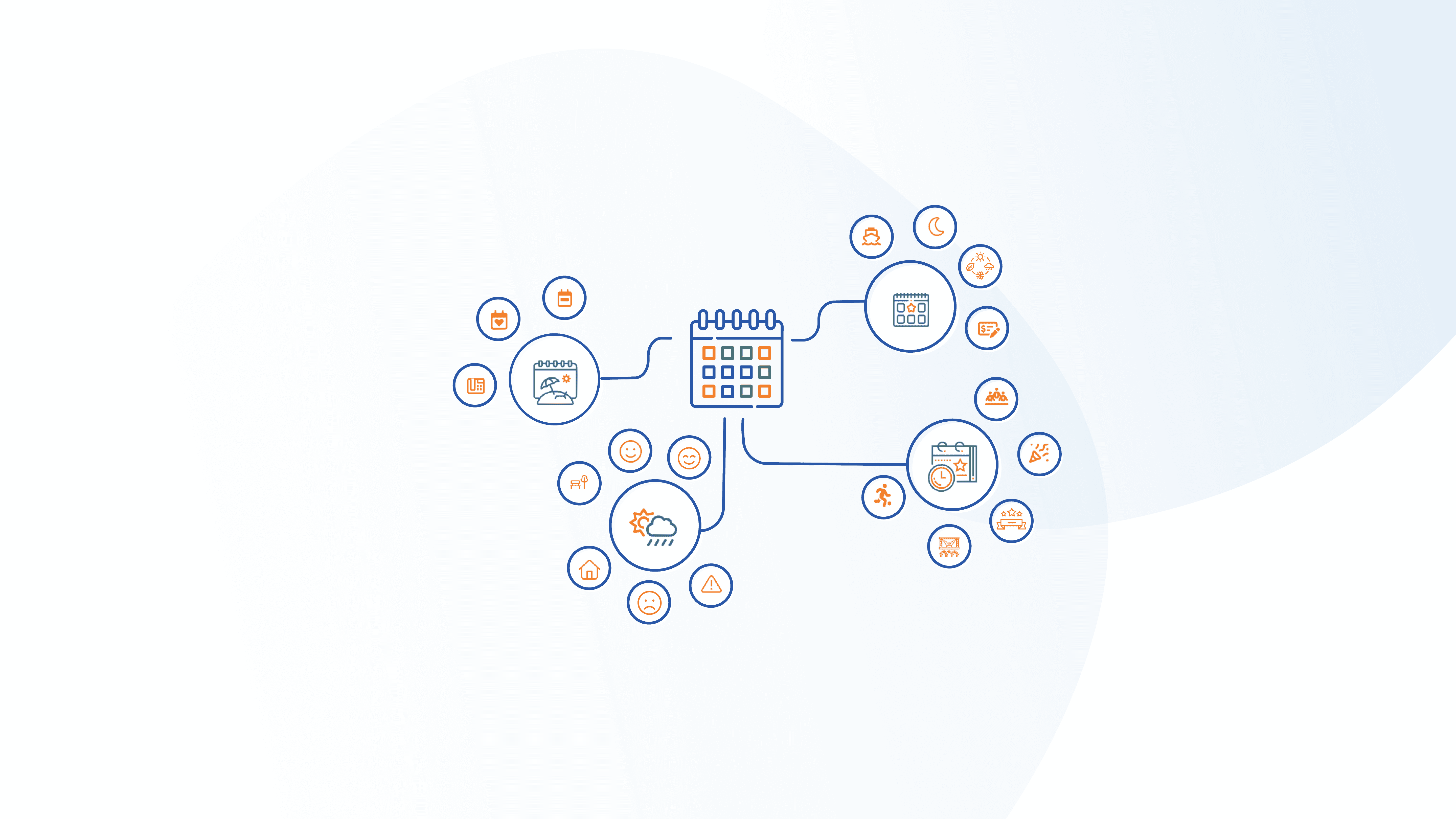

Stefán Baxter
CEO & Founder
Apr 19, 2024
Unpacking Contextual AI
The Next Frontier in Business Intelligence
Introduction
Hey folks,
If you've been in the tech game as long as I have, you've seen a lot of buzzwords come and go. But every once in a while, a concept sticks around and fundamentally changes the way we do business. Contextual AI is one of those game-changers. Now, I'm not here to sell you a dream but to break down what Contextual AI is and why it's worth your attention.
What is Contextual AI?

At its core, Contextual AI is about making our machines smarter by giving them a sense of "context." Traditional AI systems are like that guy at the party who only talks about himself—sure, they're smart, but they lack awareness of what's happening around them. Contextual AI changes that. It allows systems to understand, interpret, and respond to external factors in real time.
Why Does Context Matter?
Imagine you're a retailer. Your AI system tells you that winter coats are the most searched item on your website. Great, right? But what if there's a heatwave going on? That's where Contextual AI comes in. It takes into account not just internal data but also external factors like weather conditions, market trends, and customer sentiment. So, instead of bulk ordering winter coats, you adjust your inventory based on a more holistic view.
How Does It Work?
Contextual AI employs various forms of artificial intelligence and machine learning, ranging from Complex Event Processing (CEP) to Large Language Models and deep learning. These technologies work in tandem to analyze both internal and external data streams. For instance, Contextual AI can analyze semantic business events alongside market trends in real-time event streaming to provide actionable insights.
Real-World Applications

In my years of experience, I've seen Contextual AI make waves in multiple sectors:
Healthcare
Tailoring patient care based on real-time health metrics and external factors like air quality.Finance
Adjusting trading algorithms based on market sentiment and geopolitical events.Retail
Personalizing customer experiences based on shopping behaviour and current trends.Supply Chain
Optimizing logistics based on real-time traffic data, weather conditions, and all relevant external factors.
The Road Ahead
Contextual AI is not a silver bullet. Like any technology, it has its limitations and challenges, such as data privacy concerns and the complexity of integrating it into existing systems. However, the potential benefits far outweigh the drawbacks.
Conclusion
As someone who's been around the block a few times, I can tell you that Contextual AI is more than just a buzzword—it's a paradigm shift. It adds a layer of intelligence to our systems, making them smart but also aware and adaptive. And in today's ever-changing business landscape, that's not just nice to have; it's a necessity.
So, whether you're a seasoned veteran like me or a newcomer eager to make your mark, keep an eye on Contextual AI. It's shaping up to be the next big thing in business intelligence, and you will want to take advantage of it.
Cheers, Stefán
Introduction
Hey folks,
If you've been in the tech game as long as I have, you've seen a lot of buzzwords come and go. But every once in a while, a concept sticks around and fundamentally changes the way we do business. Contextual AI is one of those game-changers. Now, I'm not here to sell you a dream but to break down what Contextual AI is and why it's worth your attention.
What is Contextual AI?

At its core, Contextual AI is about making our machines smarter by giving them a sense of "context." Traditional AI systems are like that guy at the party who only talks about himself—sure, they're smart, but they lack awareness of what's happening around them. Contextual AI changes that. It allows systems to understand, interpret, and respond to external factors in real time.
Why Does Context Matter?
Imagine you're a retailer. Your AI system tells you that winter coats are the most searched item on your website. Great, right? But what if there's a heatwave going on? That's where Contextual AI comes in. It takes into account not just internal data but also external factors like weather conditions, market trends, and customer sentiment. So, instead of bulk ordering winter coats, you adjust your inventory based on a more holistic view.
How Does It Work?
Contextual AI employs various forms of artificial intelligence and machine learning, ranging from Complex Event Processing (CEP) to Large Language Models and deep learning. These technologies work in tandem to analyze both internal and external data streams. For instance, Contextual AI can analyze semantic business events alongside market trends in real-time event streaming to provide actionable insights.
Real-World Applications

In my years of experience, I've seen Contextual AI make waves in multiple sectors:
Healthcare
Tailoring patient care based on real-time health metrics and external factors like air quality.Finance
Adjusting trading algorithms based on market sentiment and geopolitical events.Retail
Personalizing customer experiences based on shopping behaviour and current trends.Supply Chain
Optimizing logistics based on real-time traffic data, weather conditions, and all relevant external factors.
The Road Ahead
Contextual AI is not a silver bullet. Like any technology, it has its limitations and challenges, such as data privacy concerns and the complexity of integrating it into existing systems. However, the potential benefits far outweigh the drawbacks.
Conclusion
As someone who's been around the block a few times, I can tell you that Contextual AI is more than just a buzzword—it's a paradigm shift. It adds a layer of intelligence to our systems, making them smart but also aware and adaptive. And in today's ever-changing business landscape, that's not just nice to have; it's a necessity.
So, whether you're a seasoned veteran like me or a newcomer eager to make your mark, keep an eye on Contextual AI. It's shaping up to be the next big thing in business intelligence, and you will want to take advantage of it.
Cheers, Stefán
Introduction
Hey folks,
If you've been in the tech game as long as I have, you've seen a lot of buzzwords come and go. But every once in a while, a concept sticks around and fundamentally changes the way we do business. Contextual AI is one of those game-changers. Now, I'm not here to sell you a dream but to break down what Contextual AI is and why it's worth your attention.
What is Contextual AI?

At its core, Contextual AI is about making our machines smarter by giving them a sense of "context." Traditional AI systems are like that guy at the party who only talks about himself—sure, they're smart, but they lack awareness of what's happening around them. Contextual AI changes that. It allows systems to understand, interpret, and respond to external factors in real time.
Why Does Context Matter?
Imagine you're a retailer. Your AI system tells you that winter coats are the most searched item on your website. Great, right? But what if there's a heatwave going on? That's where Contextual AI comes in. It takes into account not just internal data but also external factors like weather conditions, market trends, and customer sentiment. So, instead of bulk ordering winter coats, you adjust your inventory based on a more holistic view.
How Does It Work?
Contextual AI employs various forms of artificial intelligence and machine learning, ranging from Complex Event Processing (CEP) to Large Language Models and deep learning. These technologies work in tandem to analyze both internal and external data streams. For instance, Contextual AI can analyze semantic business events alongside market trends in real-time event streaming to provide actionable insights.
Real-World Applications

In my years of experience, I've seen Contextual AI make waves in multiple sectors:
Healthcare
Tailoring patient care based on real-time health metrics and external factors like air quality.Finance
Adjusting trading algorithms based on market sentiment and geopolitical events.Retail
Personalizing customer experiences based on shopping behaviour and current trends.Supply Chain
Optimizing logistics based on real-time traffic data, weather conditions, and all relevant external factors.
The Road Ahead
Contextual AI is not a silver bullet. Like any technology, it has its limitations and challenges, such as data privacy concerns and the complexity of integrating it into existing systems. However, the potential benefits far outweigh the drawbacks.
Conclusion
As someone who's been around the block a few times, I can tell you that Contextual AI is more than just a buzzword—it's a paradigm shift. It adds a layer of intelligence to our systems, making them smart but also aware and adaptive. And in today's ever-changing business landscape, that's not just nice to have; it's a necessity.
So, whether you're a seasoned veteran like me or a newcomer eager to make your mark, keep an eye on Contextual AI. It's shaping up to be the next big thing in business intelligence, and you will want to take advantage of it.
Cheers, Stefán
Introduction
Hey folks,
If you've been in the tech game as long as I have, you've seen a lot of buzzwords come and go. But every once in a while, a concept sticks around and fundamentally changes the way we do business. Contextual AI is one of those game-changers. Now, I'm not here to sell you a dream but to break down what Contextual AI is and why it's worth your attention.
What is Contextual AI?

At its core, Contextual AI is about making our machines smarter by giving them a sense of "context." Traditional AI systems are like that guy at the party who only talks about himself—sure, they're smart, but they lack awareness of what's happening around them. Contextual AI changes that. It allows systems to understand, interpret, and respond to external factors in real time.
Why Does Context Matter?
Imagine you're a retailer. Your AI system tells you that winter coats are the most searched item on your website. Great, right? But what if there's a heatwave going on? That's where Contextual AI comes in. It takes into account not just internal data but also external factors like weather conditions, market trends, and customer sentiment. So, instead of bulk ordering winter coats, you adjust your inventory based on a more holistic view.
How Does It Work?
Contextual AI employs various forms of artificial intelligence and machine learning, ranging from Complex Event Processing (CEP) to Large Language Models and deep learning. These technologies work in tandem to analyze both internal and external data streams. For instance, Contextual AI can analyze semantic business events alongside market trends in real-time event streaming to provide actionable insights.
Real-World Applications

In my years of experience, I've seen Contextual AI make waves in multiple sectors:
Healthcare
Tailoring patient care based on real-time health metrics and external factors like air quality.Finance
Adjusting trading algorithms based on market sentiment and geopolitical events.Retail
Personalizing customer experiences based on shopping behaviour and current trends.Supply Chain
Optimizing logistics based on real-time traffic data, weather conditions, and all relevant external factors.
The Road Ahead
Contextual AI is not a silver bullet. Like any technology, it has its limitations and challenges, such as data privacy concerns and the complexity of integrating it into existing systems. However, the potential benefits far outweigh the drawbacks.
Conclusion
As someone who's been around the block a few times, I can tell you that Contextual AI is more than just a buzzword—it's a paradigm shift. It adds a layer of intelligence to our systems, making them smart but also aware and adaptive. And in today's ever-changing business landscape, that's not just nice to have; it's a necessity.
So, whether you're a seasoned veteran like me or a newcomer eager to make your mark, keep an eye on Contextual AI. It's shaping up to be the next big thing in business intelligence, and you will want to take advantage of it.
Cheers, Stefán


